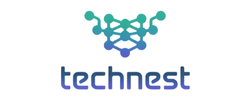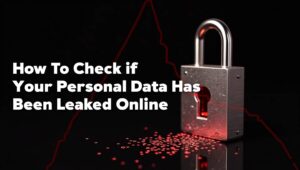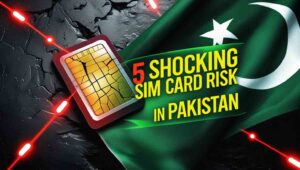In today’s digital world, your social media accounts are more than just places to connect with friends. They are your online identity. Hackers can steal your personal data, post harmful content, or even scam others using your account. That’s why it’s very important to secure your social media accounts from hackers.
In this guide, we’ll walk you through simple and effective ways to protect your social media accounts. Whether you use Facebook, Instagram, Twitter (X), LinkedIn, Snapchat, or TikTok, this article will help you stay safe.
Why You Must Protect Your Social Media Accounts
Social media hacking is on the rise. Hackers target accounts for many reasons:
- To steal personal information
- To scam your followers
- To send spam or harmful links
- To damage your online reputation
Many people search for “how to prevent social media hacking” or “how to make my account secure” because they’ve faced such problems or want to avoid them.
Use a Strong and Unique Password
A weak password is the easiest way for hackers to get into your account. Always use a strong and unique password for each social media account.
Tips for strong passwords:
- Use at least 12 characters
- Mix letters (upper and lower case), numbers, and symbols
- Avoid names, birthdays, or easy words
- Do not reuse passwords across accounts
You can also search for “best password tips for social media security” to get more ideas.
Enable Two Factor Authentication
Two Factor Authentication (2FA) is one of the best ways to add an extra layer of security. It makes it harder for hackers to access your account, even if they know your password.
When you turn on 2FA, you will:
- Enter your password
- Then enter a code sent to your phone or email
Most people search for “how to enable two factor authentication on Facebook” or “2FA for Instagram security”. Make sure you turn it on for all your accounts.
Use a Trusted Email for Account Recovery
Always link your social media to an email that only you can access. This email will help you recover your account if something goes wrong.
Avoid using shared or old emails that are not secure. Many people lose their accounts because they can’t access their recovery email.
Search terms like “how to recover hacked social media account” often point to recovery email issues.
Keep Your Apps and Devices Updated
Outdated apps and devices are easier to hack. Social media apps release updates to fix bugs and security gaps. Always install the latest updates on:
- Your phone
- Your apps (Facebook, Instagram, etc.)
- Your operating system
Searches like “how to secure my phone from hackers” are common and show the importance of device security.
Be Careful with Third Party Apps
Sometimes, you connect third-party apps to your social media. These can be games, quizzes, or tools to check followers. Not all of them are safe.
To stay safe:
- Only use apps from trusted sources
- Read reviews before giving access
- Remove access from unused apps
People often ask, “how to remove third party apps from Facebook or Instagram” to tighten their security.
Do Not Click on Suspicious Links
Phishing is a common way hackers trick you into giving up your login details. You may get messages or emails that look real, asking you to click on a link.
Do not click unless you are sure it is safe.
Red flags:
- Messages that create panic (e.g., “Your account will be deleted”)
- Misspelled links or strange domains
- Requests for login details outside the official app
Search queries like “how to identify phishing messages” or “social media phishing protection” show how serious this threat is.
Log Out from Devices You Don’t Use
If you’ve logged into your account from a friend’s phone or a public computer, log out. Leaving your account open on unknown devices is risky.
You can:
- Check where your account is logged in
- Remove unknown devices
- Change your password if something looks odd
People search for “how to check login activity on Instagram or Facebook” to monitor their security.
Avoid Using Public WiFi for Logging In
Public WiFi is not secure. Hackers can easily capture your data over open networks.
Avoid logging into your social media when using:
- Airports
- Cafes
- Hotels
- Free WiFi spots
Use a VPN if you must access your accounts on public networks. That’s why “best VPN for social media safety” is a trending search term.
Don’t Share Too Much Personal Info
Many people post their full name, date of birth, and location on their profiles. This information can be used by hackers to guess your passwords or answer security questions.
Keep sensitive details private and limit what others can see.
Search: “how to hide personal info on social media” for privacy settings tips.
Set Up Alerts for Suspicious Activity
Some platforms allow you to turn on alerts for unknown logins or activity. This helps you act fast if someone tries to hack your account.
Enable these in your account settings:
- Login alerts
- Device login notifications
- Password change notifications
Popular search: “how to get login alerts on Facebook/Instagram”.
Monitor Your Account Regularly
Make a habit of checking your account activity:
- Look for unknown posts or messages
- Check login history
- See connected apps and devices
- Update passwords every few months
Searchers often look for “how to check if my social media is hacked” — regular monitoring helps you catch signs early.
What To Do If Your Social Media Account Is Hacked
If your account is already hacked:
- Try to reset the password
- Use your recovery email or phone number
- Contact the platform’s support center
- Inform your contacts not to trust recent messages from you
- Enable all security settings after recovery
Search terms include “recover hacked Facebook account”, “Instagram hacked what to do”, and “how to get back stolen social media account”.
Final Thoughts on Social Media Security
Social media safety is not just about avoiding hackers. It’s about protecting your identity, privacy, and peace of mind. By following the tips in this guide, you can secure your accounts and reduce the risk of being hacked.




Leave a Reply